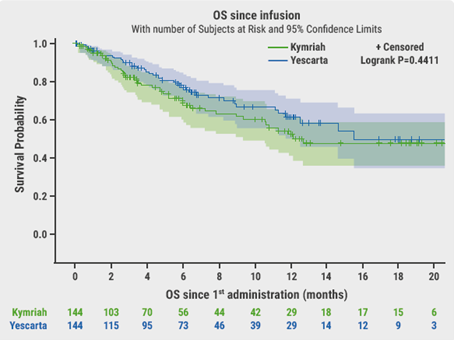https://doi.org/10.55788/6602bc1f
“VIP is a neuropeptide that is known to be secreted by myeloid progenitor cells, nerves, and activated T cells, binding on receptors on dendritic cells and naïve T cells, leading to tolerogenic dendritic cells, and ultimately to regulatory T cells, which downregulate Th1 and upregulate Th2 polarisation,” explained Prof. Edmund Waller (Emory University, GA, USA) [1]. “These regulatory T cells have been shown to inhibit activated T cells,” added Prof. Waller. A research team looked at the possibility to target VIP in AML. “We know that VIP binds to surface receptors VPAC1 and VPAC2, which are present on the T cells of humans and mice,” Prof. Waller continued.
The authors used in silico screening to map a library of alternative peptide sequences to identify peptide sequences with high binding affinity to human VPAC1 and VPAC2. Subsequently, the investigators selected the peptide sequences with potent antileukaemic activity in mice.
Various VIP receptor antagonists were associated with improved survival and delivered durable remissions in mice with leukaemia. Furthermore, higher dose intensities of VIP receptor antagonist therapies were linked to superior survival outcomes compared with lower dose intensities. “Mice that survived the initial leukaemic challenge after treatment with the VIP receptor antagonist were resistant to subsequent re-challenges with the same leukaemia,” added Prof. Waller. Finally, VIP receptor antagonist peptides activated human T cells in vitro.
“VIP receptor antagonists enhance T-cell dependent anti-leukaemic effects,” said Prof. Waller. “A longer-acting form of VIP receptor antagonists is currently being developed.”
- Waller EK, et al. Novel immunotherapy for AML. OS21-03, European Society for Blood and Marrow Transplantation (EBMT) 49th Annual Meeting, 23–26 April 2023, Paris, France.
Copyright ©2023 Medicom Medical Publishers
Posted on
Previous Article
« EVOLVE Expansion study: vedolizumab and ustekinumab as first-line biologic treatments for Crohn’s disease Next Article
Tacrolimus versus cyclosporin A in AML »
« EVOLVE Expansion study: vedolizumab and ustekinumab as first-line biologic treatments for Crohn’s disease Next Article
Tacrolimus versus cyclosporin A in AML »
Table of Contents: EBMT 2023
Featured articles
CAR T cells rise to the front in multiple myeloma
Acute Leukaemia
Quizartinib plus chemotherapy improves OS in patients with AML undergoing ASCT
Blinatumomab may improve outcomes in patients with B-cell ALL undergoing ASCT
Is ASCT a reasonable option in patients with invasive aspergillosis?
Tacrolimus versus cyclosporin A in AML
Promising novel target identified for AML
Multiple Myeloma
Ide-cel superior to standard therapies in triple-class exposed RRMM
ASCT or CAR T cell as first-line therapy for MM?
DETERMINATION: Does one size fit all in multiple myeloma?
Graft-Versus-Host Disease
New options to treat steroid-refractory chronic GvHD
New developments in steroid-refractory acute GvHD
Miscellaneous Topics
Long-term success for CD19 CAR T-cell therapy in CLL
Can molecular data improve prognostication in MDS patients undergoing HSCT?
Next-generation cell therapies for cancer: CAR-NK cells
Novel drugs and strategies around ASCT for Hodgkin lymphoma
Thalassaemia: Advances in conventional transplantation and gene therapy
Related Articles

February 7, 2024
Long-term efficacy and safety of iptacopan in PNH with anaemia
February 8, 2021
Burkitt lymphoma prognostic index may lead to more targeted therapy
© 2024 Medicom Medical Publishers. All rights reserved. Terms and Conditions | Privacy Policy
HEAD OFFICE
Laarderhoogtweg 25
1101 EB Amsterdam
The Netherlands
T: +31 85 4012 560
E: publishers@medicom-publishers.com

